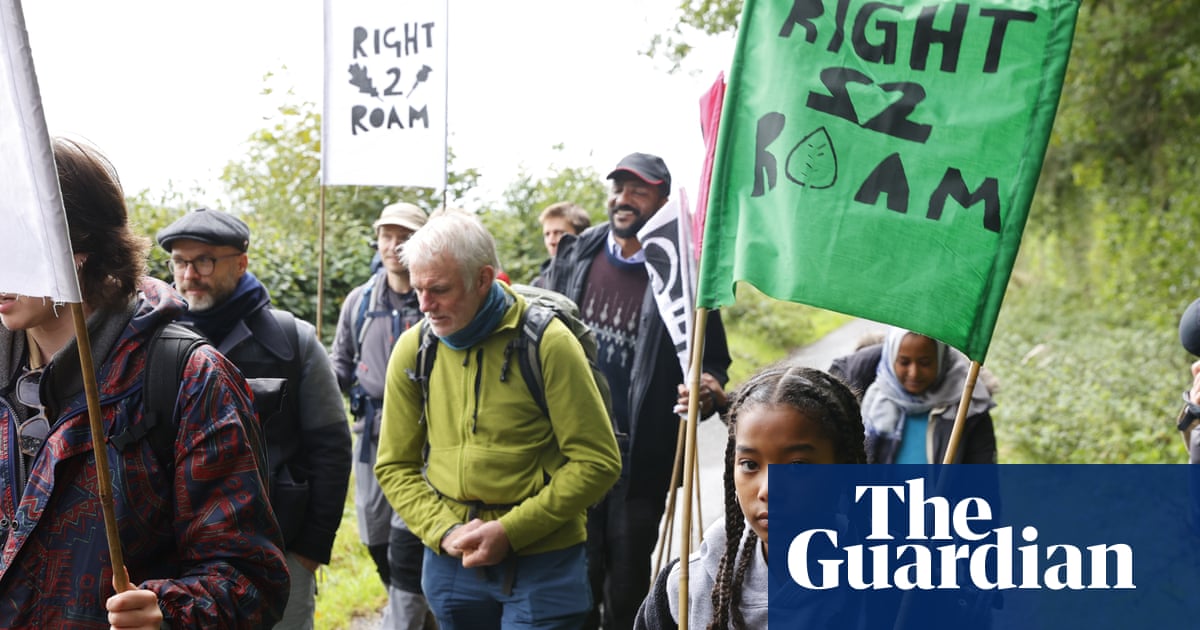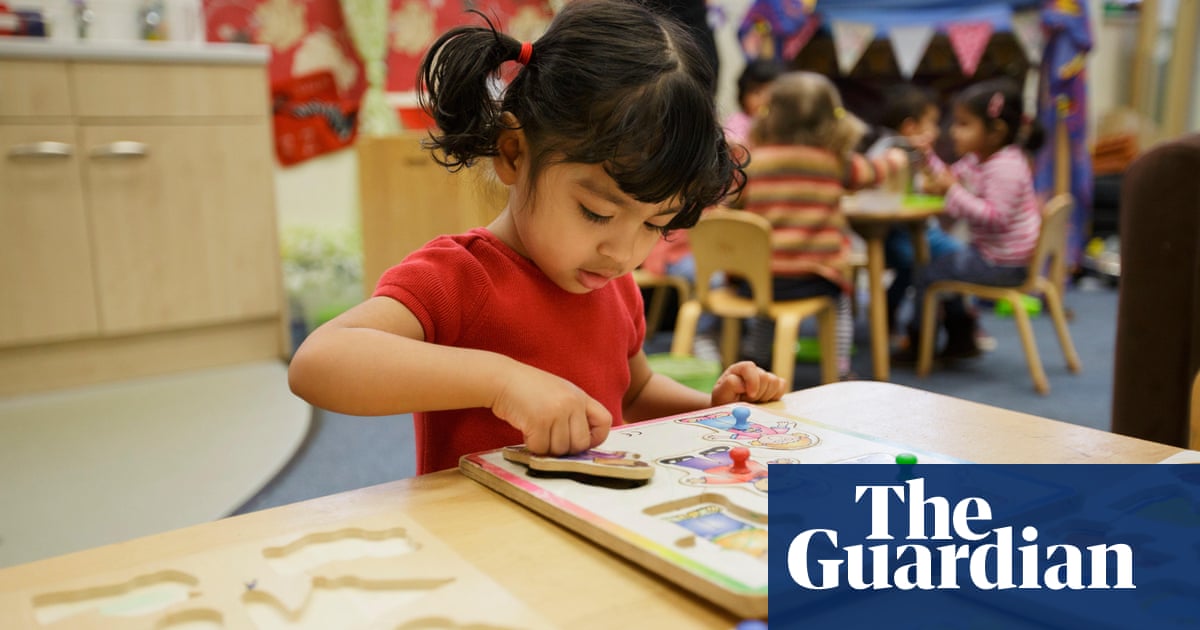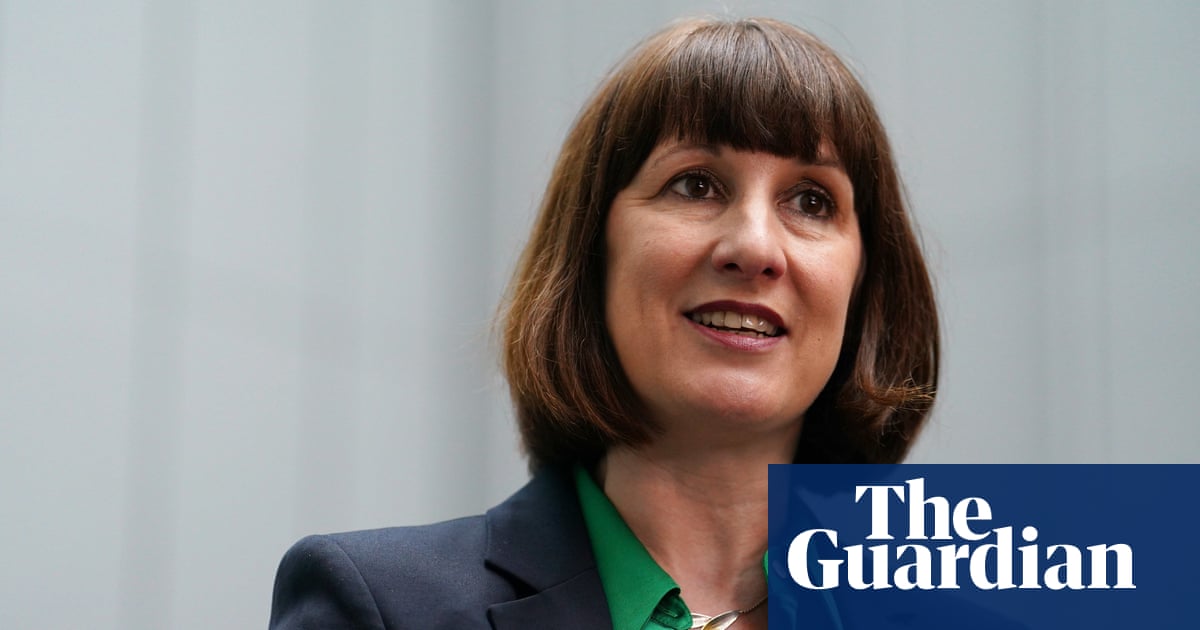
Councils in England will be encouraged to open more high-quality maintained nurseries as part of ambitious Labour plans to transform childcare and ease pressure on struggling parents.
There are fewer than 400 surviving state nursery schools across the country, which are regarded as the jewel in the crown of early years education, but have struggled to survive in the face of budget pressures.
Labour is planning to expand the state nursery sector as part of wider plans to build a system of high-quality, affordable childcare that better meets the needs of modern families and their working lives.
With concerns about the cost and availability of childcare increasingly coming up on the doorstep, Labour is working on an “extensive childcare offer” ahead of the next election and has said it will be one of the issues on the party’s pledge card.
This week, the shadow education secretary, Bridget Phillipson, went to look at childcare and early years education in the Baltic state of Estonia, where all children are guaranteed a place in state-run kindergartens from the age of 18 months until they go to school at seven, and parents pay just €70 a month or less.
After announcing plans for fully funded breakfast clubs for every primary school in England, Phillipson is keen to develop wraparound care to extend the school day, and to that end went to see some of Estonia’s “hobby schools” – free after-school clubs that support children’s education and offer parents flexibility if they have to work late.
“We need a system that better reflects the needs of modern families and the way they live their lives now,” she told the Guardian during her visit to Estonia. “I don’t think you can talk about growing your economy unless you’ve got a childcare system that supports parents.
“It’s clear to me that we need to see a real transformation in the early education and childcare that’s available to parents, that’s brought together in one system that provides seamless support from the end of parental leave to the end of primary school.”
Crucially, Labour is looking to plug the gap between the end of parental leave and the start of the 30 hours of free childcare, which kicks in for working parents once a child is three. “There is for most families no support offered, yet most women want to be able to work when they’ve reached the end of their parental leave,” said Phillipson.
“Increasingly – and the numbers do bear this out – they are giving up in bigger numbers because there is no government contribution [during this time]. That has to change. It will be a big priority for me.”
She said high-quality early years education was clearly beneficial for children from disadvantaged backgrounds, but stressed that she wanted Labour’s offer to “benefit all parents, including many professional parents who find that the cost is crippling”.
For now, all policy development comes with a health warning, that until Labour knows the state of the public finances it is impossible to make firm promises. Policymakers are however looking at repurposing some of the money already in what is currently a fragmented and unwieldy childcare system.
Maintained nursery schools provide state-funded childcare up to the age of five, and often include dedicated provision for special needs or disabilities. They are run like schools and are the closest thing to the Estonian kindergarten in the English system, but only 385 of them survive in England because of the high cost involved.
Labour’s plan to grow the sector will remove barriers in current legislation that prevent local authorities from establishing new childcare provision, other than where they can demonstrate there is no other provider who could deliver. “We would like to expand this element of the sector but it’s very much ‘direction of travel’ and would not happen overnight,” said one source.
Beatrice Merrick, the chief executive of the British Association for Early Childhood Education, welcomed Labour’s plans for new state nursery schools. “We know they are the most effective form of provision, particularly supporting children with the most complex needs and in the most disadvantaged areas.”












